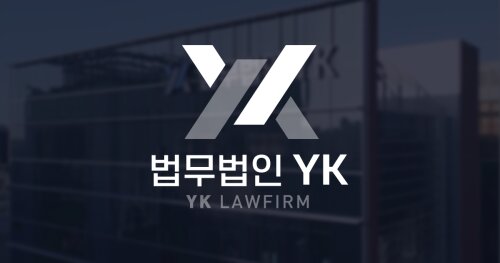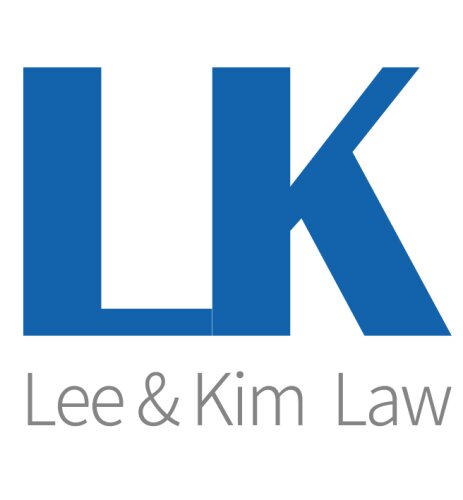Best Arrests & Searches Lawyers in South Korea
Share your needs with us, get contacted by law firms.
Free. Takes 2 min.
Or refine your search by selecting a city:
List of the best lawyers in South Korea
About Arrests & Searches Law in South Korea
Arrests and searches in South Korea are governed by the Criminal Procedure Act, which provides the legal framework for maintaining order and protecting individual rights. This legislation sets forth the conditions under which law enforcement can arrest individuals or conduct searches. Generally, arrests require a warrant, though exceptions exist for cases involving urgency or in flagrante delicto (caught in the act). Searches and seizures must also generally be authorized by warrant and conducted under specific circumstances to ensure the protection of privacy and individual rights.
Why You May Need a Lawyer
Legal issues involving arrests and searches can be complex, and a lawyer's assistance may be vital in several scenarios, such as:
- If you have been arrested and are facing charges.
- If you believe your rights have been violated during a search or seizure.
- If you want to understand the legal procedures following an arrest.
- If you seek to challenge the legality of an arrest or search warrant.
- If you are a non-Korean citizen unfamiliar with local laws and regulations.
Local Laws Overview
Key aspects of the legal framework regarding arrests and searches in South Korea include:
- Arrest Warrants: Required in most cases, except for emergencies or situations where arrest is made during the commission of a crime.
- Search Warrants: Typically needed to conduct searches, ensuring a legal balance between law enforcement needs and privacy rights.
- Rights of the Accused: Includes the right to remain silent, the right to legal representation, and the right to be informed of the reason for arrest.
- Detention Limits: Initial detention is allowed for up to 48 hours; further detention requires court approval.
Frequently Asked Questions
What should I do if I am arrested in South Korea?
Remain calm, assert your right to remain silent, and request to contact a lawyer as soon as possible. It is vital to cooperate with police instructions without volunteering information without legal counsel present.
Can the police search my home without a warrant?
Generally, police need a warrant to search your home unless there are exigent circumstances, such as imminent threat to life or safety or when seeking evidence as a crime is occurring.
What rights do I have if my place is being searched?
You have the right to see a warrant and the right to be present during the search. Ensure that the officers provide an inventory of items seized, if any.
How long can I be detained without formal charges?
Initially, you can be detained for up to 48 hours. Beyond that, the police must seek court approval to extend detention for investigation purposes.
Are there special considerations for tourists or expatriates?
Yes, while the legal framework applies equally, language barriers and unfamiliarity with the process can complicate matters. Seeking legal representation quickly is advised.
What constitutes an unlawful arrest or search?
An arrest or search without a warrant, without probable cause, or conducted in a manner that violates procedural rights may be considered unlawful.
Can evidence obtained through unlawful search be used in court?
Illegally obtained evidence is generally inadmissible in South Korean courts, similar to many other legal systems.
What role does a lawyer play during the arrest process?
A lawyer can provide guidance on your rights, negotiate bail conditions, and prepare defenses against charges or procedural errors.
Can I file a complaint if my rights were violated during an arrest?
Yes, you can file a complaint with local law enforcement bodies or seek legal avenues for redress through the Korean judiciary.
Is bail available in South Korea?
Bail can be granted under certain conditions, though its availability may depend on the nature of the crime and the accused's personal circumstances.
Additional Resources
For further assistance, individuals can reach out to the following resources:
- Korean Bar Association: Offers a directory of legal professionals and resources.
- National Human Rights Commission of Korea: Provides guidance on civil rights issues.
- Korean Legal Aid Corporation: Offers legal aid services to those unable to afford private counsel.
- Embassies and Consulates: Foreign nationals may want to contact their respective embassies for additional support.
Next Steps
If you need legal assistance in matters of arrests and searches, consider the following steps:
- Contact a lawyer specializing in criminal law in South Korea to discuss your case.
- Keep detailed records of all interactions with law enforcement, including times, dates, and names of officers involved.
- Request copies of any documentation related to arrests or searches conducted.
- Stay informed about your rights and obligations during legal proceedings.
Following these steps can help protect your rights and ensure that you receive fair treatment under the Japanese legal system.
Lawzana helps you find the best lawyers and law firms in South Korea through a curated and pre-screened list of qualified legal professionals. Our platform offers rankings and detailed profiles of attorneys and law firms, allowing you to compare based on practice areas, including Arrests & Searches, experience, and client feedback.
Each profile includes a description of the firm's areas of practice, client reviews, team members and partners, year of establishment, spoken languages, office locations, contact information, social media presence, and any published articles or resources. Most firms on our platform speak English and are experienced in both local and international legal matters.
Get a quote from top-rated law firms in South Korea — quickly, securely, and without unnecessary hassle.
Disclaimer:
The information provided on this page is for general informational purposes only and does not constitute legal advice. While we strive to ensure the accuracy and relevance of the content, legal information may change over time, and interpretations of the law can vary. You should always consult with a qualified legal professional for advice specific to your situation.
We disclaim all liability for actions taken or not taken based on the content of this page. If you believe any information is incorrect or outdated, please contact us, and we will review and update it where appropriate.
Browse arrests & searches law firms by city in South Korea
Refine your search by selecting a city.

















